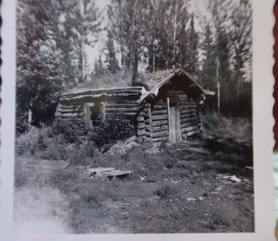
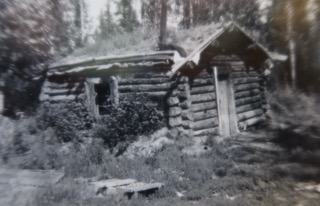
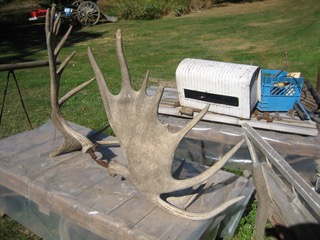
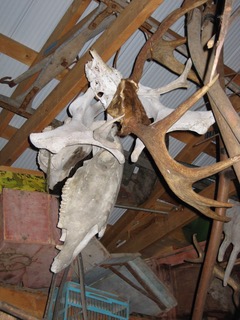
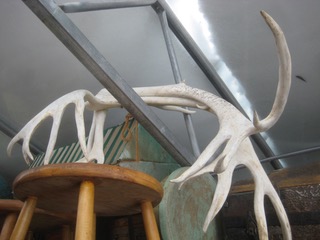
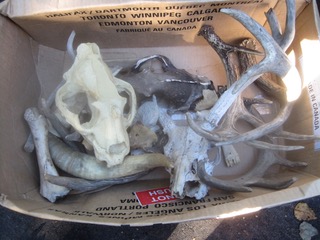
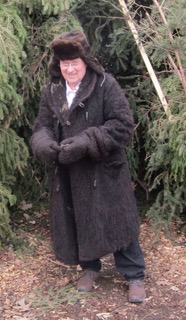
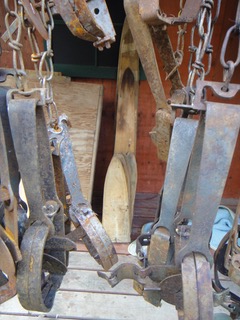
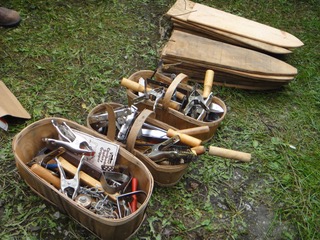
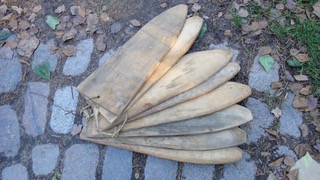
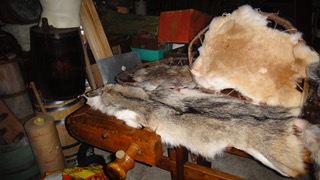
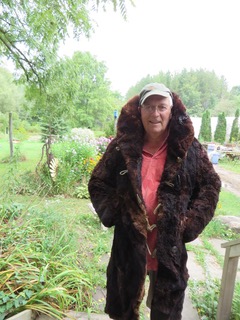
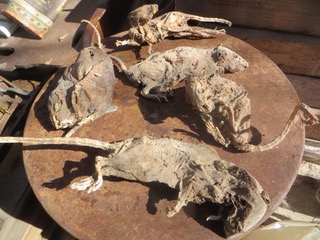
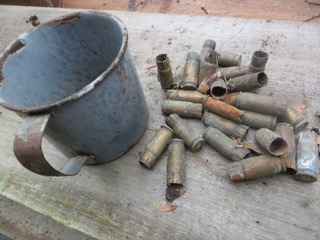
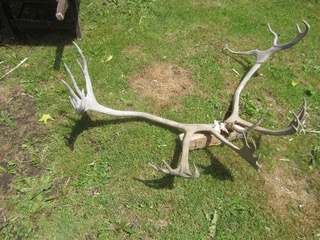
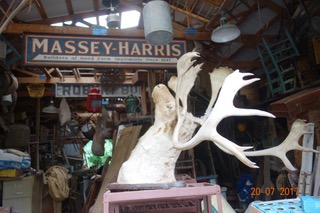
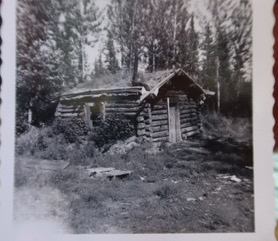
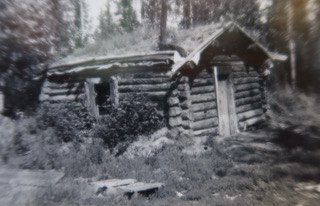
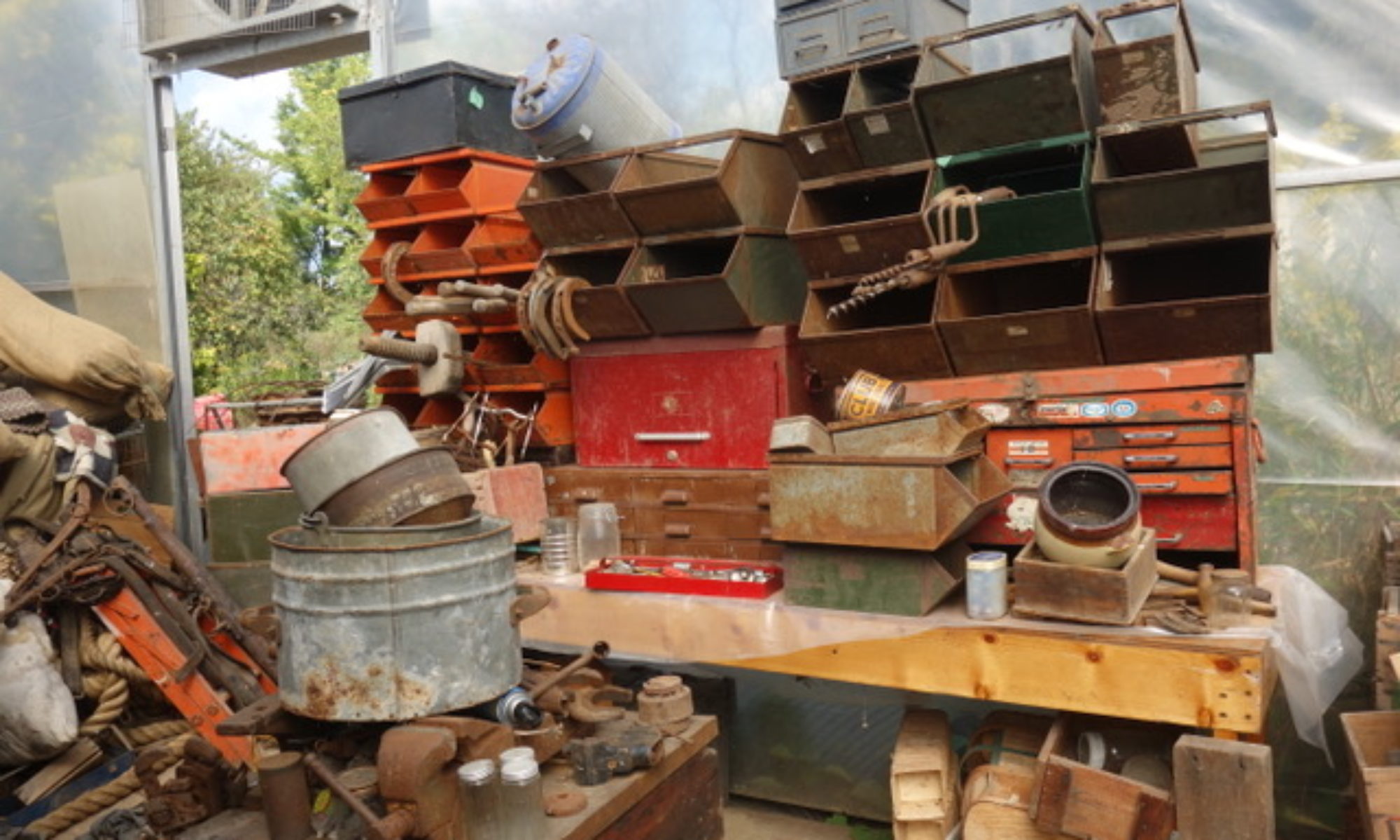
Alan's Oeuvre


















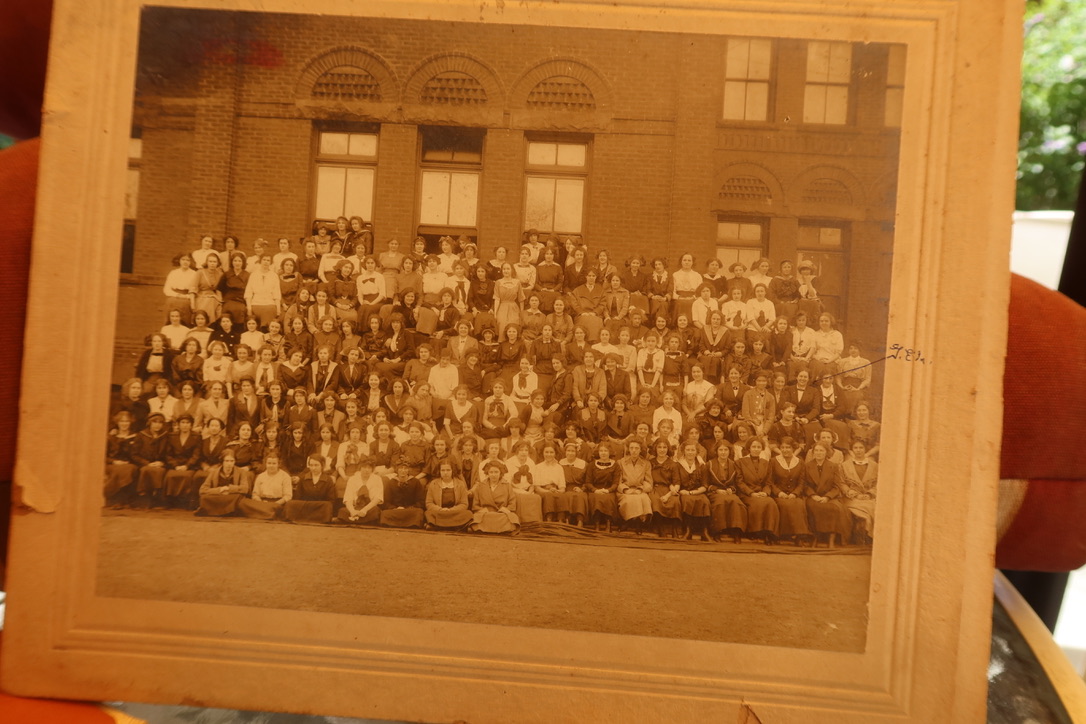
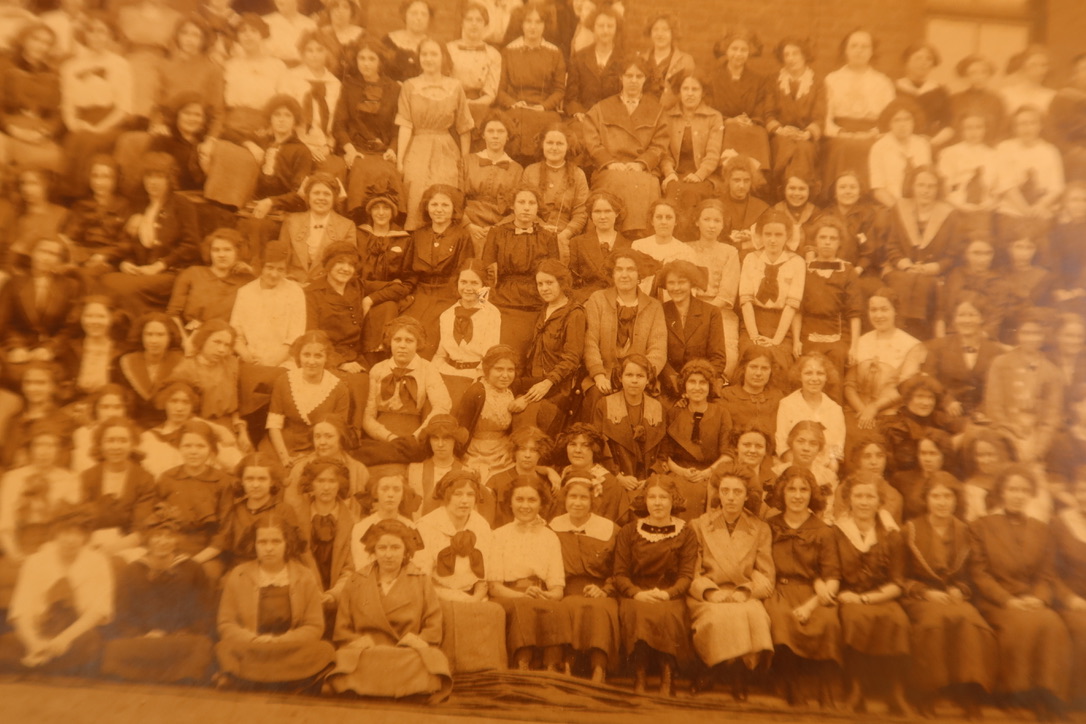
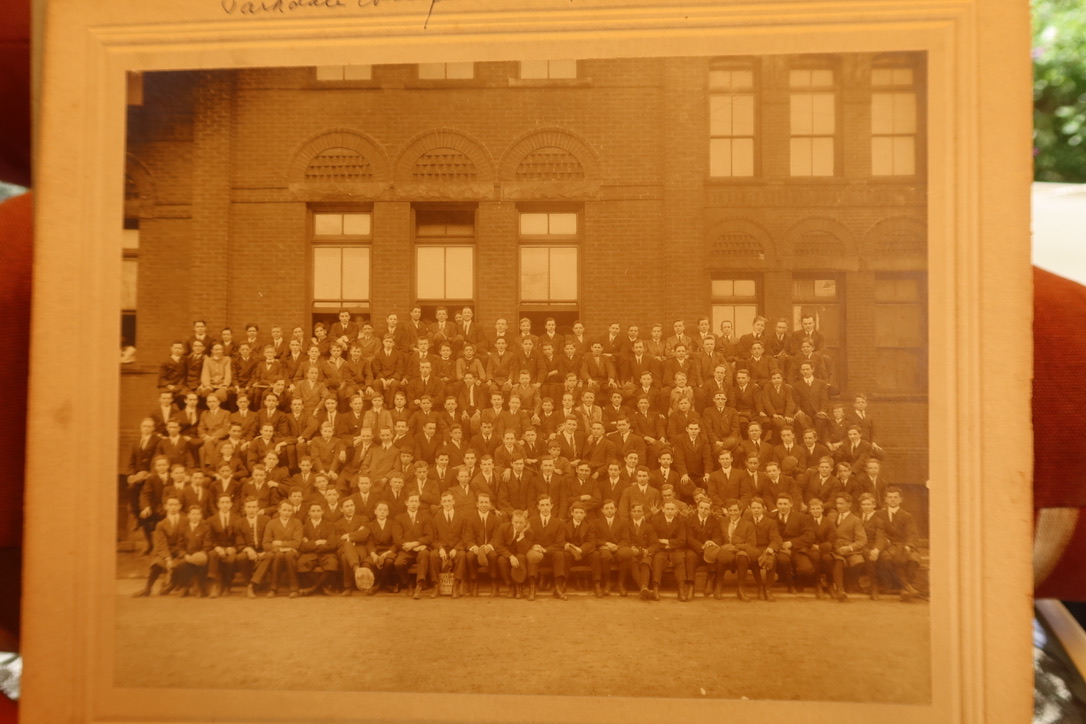
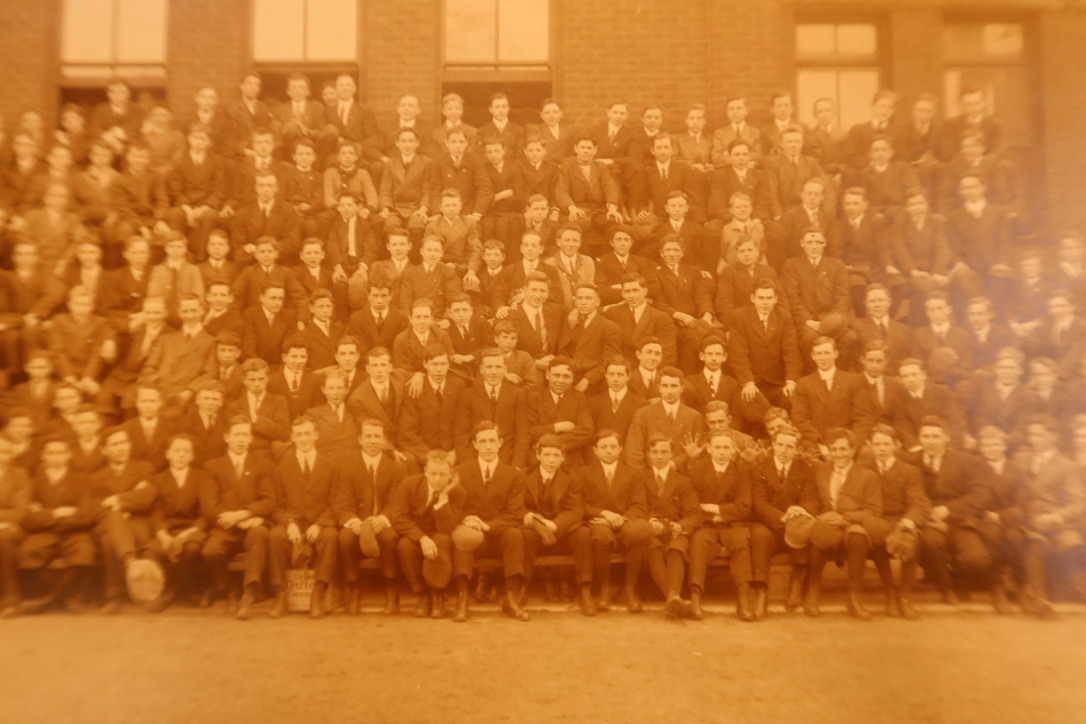
EPISODE 864 ELSIE FREEMAN SKEOCH — SEAMSTRESS, MOTHER, SWEATSHOP WORKER…THE PUTTING OUT SYSTEM IN 1945alan skeochjuly 29, 2023
ELSIE LOUISA FREEMAN SKEOCH AND ARNOLD ‘RED’ SKEOCH, MARRIED IN 1937Elsie Freeman married Arnold ‘Red’ Skeoch in 1937. After a long courtsihip. Their parents were Ontario farmers. Both became members ofthe industrial working class as World War One came to its miserable end. Dad was a tire builder. Proud of it. Mom was a seamstress.Proud of it. Both were loved by their two children, Alan and Eric Skeoch. We, Eric and I, were not huggers or kissers. We tookour parents for granted. Paricularly mom.HOW DID MOM RAISE A FAMILY ON SWEATSOP WAGES…I DO NOT KNOW
The mystery remains. How did Elsie Freeman Skeoch raise a family on sweatshop wges. Deeper than that.How did she do it without a shred of rancour or bitterness. How did she keep our lives free from feelings of povertyand neglect,. Eric and I had a great life…full of laughter and completely free of envy or bitterness?IN EPISODE 864 you are asked to read Thomas Hood’s Sonf of the Shirt. It is a miserable poem documenting the horrificlives of the English working class seamstresses. There is one huge difference between the women described byHood and our mother, Elsie Freeman. There is no joy in The Song of the Shirt. Our lives as children of aseamstress were full of joy. We laughed a lot. We did things together. We never felt deprived. As a matter offact we felt sorry for those around us who seemed to have little joy in their lives.
Song of the Shirt
With fingers weary and worn, With eyelids heavy and red, A woman sat in unwomanly rags, Plying her needle and thread— Stitch! stitch! stitch! In poverty, hunger, and dirt, And still with a voice of dolorous pitch She sang the “Song of the Shirt.” “Work! work! work! While the cock is crowing aloof! And work—work—work, Till the stars shine through the roof!Mom with dad (far right) and his brothers
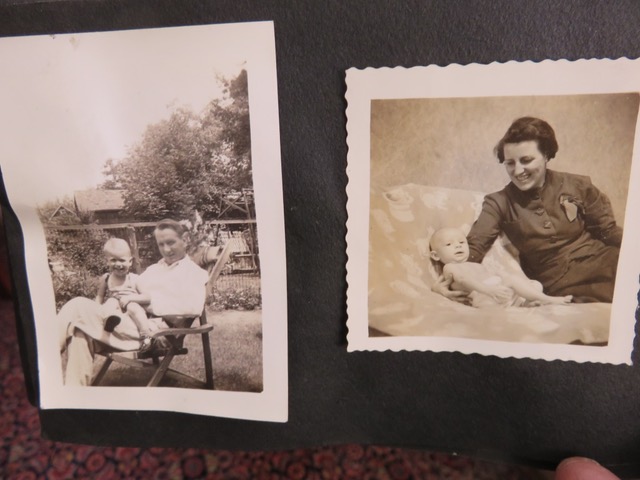
Dad took us to High Park on a day the horses were not running at Dufferin or Woodbine racetracks.
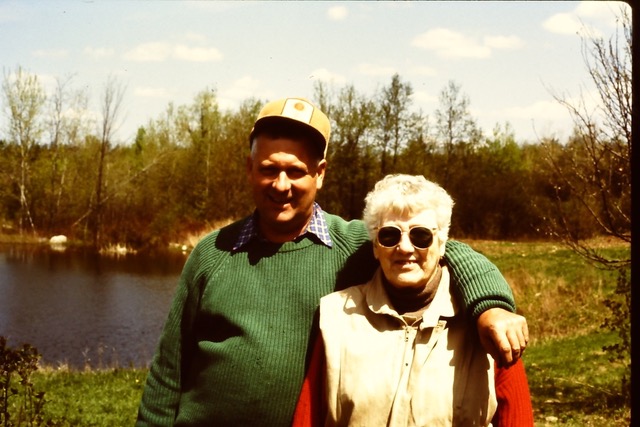
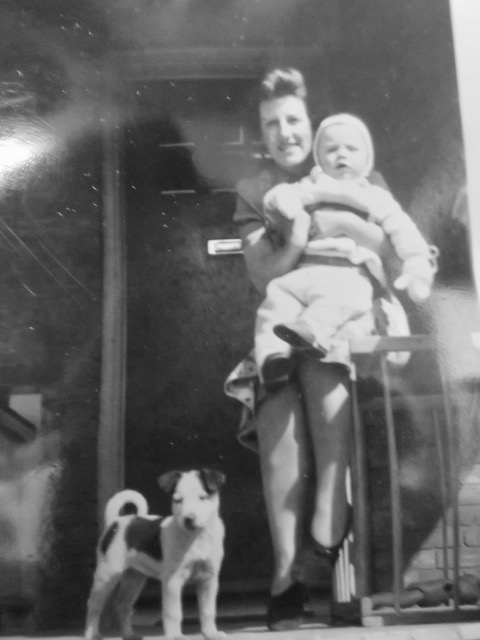
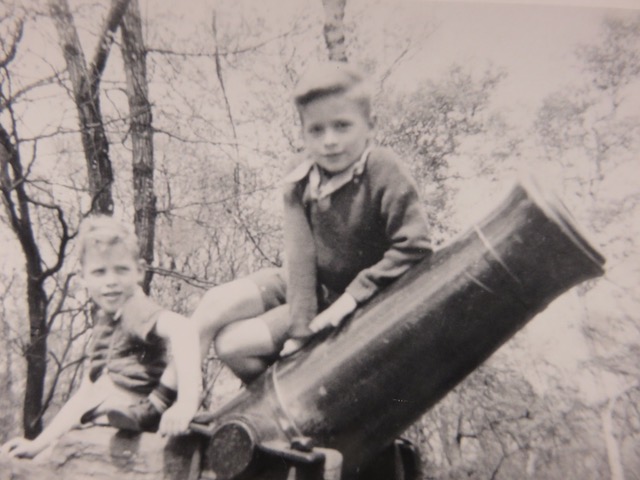
This is mom as a little girl in England around 1906. Granddad hand carved this oak frame .
With fingers weary and worn, With eyelids heavy and red, A woman sat in unwomanly rags, Plying her needle and thread— Stitch! stitch! stitch! In poverty, hunger, and dirt, And still with a voice of dolorous pitch She sang the “Song of the Shirt.” “Work! work! work! While the cock is crowing aloof! And work—work—work, Till the stars shine through the roof! It’s O! to be a slave Along with the barbarous Turk, Where woman has never a soul to save, If this is Christian work! “Work—work—work, Till the brain begins to swim; Work—work—work, Till the eyes are heavy and dim! Seam, and gusset, and band, Band, and gusset, and seam, Till over the buttons I fall asleep, And sew them on in a dream! “O, men, with sisters dear! O, men, with mothers and wives! It is not linen you’re wearing out, But human creatures’ lives! Stitch—stitch—stitch, In poverty, hunger and dirt, Sewing at once, with a double thread, A Shroud as well as a Shirt. “But why do I talk of death? That phantom of grisly bone, I hardly fear his terrible shape, It seems so like my own— It seems so like my own, Because of the fasts I keep; Oh, God! that bread should be so dear. And flesh and blood so cheap! “Work—work—work! My labour never flags; And what are its wages? A bed of straw, A crust of bread—and rags. That shattered roof—this naked floor— A table—a broken chair— And a wall so blank, my shadow I thank For sometimes falling there! “Work—work—work! From weary chime to chime, Work—work—work, As prisoners work for crime! Band, and gusset, and seam, Seam, and gusset, and band, Till the heart is sick, and the brain benumbed, As well as the weary hand. “Work—work—work, In the dull December light, And work—work—work, When the weather is warm and bright— While underneath the eaves The brooding swallows cling As if to show me their sunny backs And twit me with the spring. “O! but to breathe the breath Of the cowslip and primrose sweet— With the sky above my head, And the grass beneath my feet; For only one short hour To feel as I used to feel, Before I knew the woes of want And the walk that costs a meal! “O! but for one short hour! A respite however brief! No blessed leisure for Love or hope, But only time for grief! A little weeping would ease my heart, But in their briny bed My tears must stop, for every drop Hinders needle and thread!” With fingers weary and worn, With eyelids heavy and red, A woman sat in unwomanly rags, Plying her needle and thread— Stitch! stitch! stitch! In poverty, hunger, and dirt, And still with a voice of dolorous pitch,— Would that its tone could reach the Rich!— She sang this “Song of the Shirt!”
This poem is in the public domain.
EPISODE 863 “THE SONG OF THE SHIRT” by THOMS HOOD, 1843 and THE PUTTING OUR STYTEM
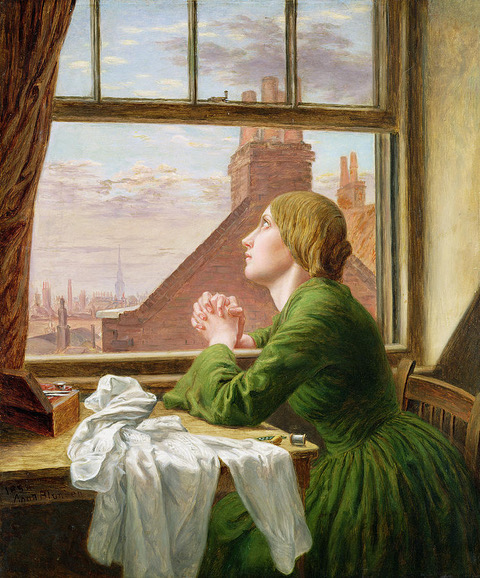
2With eyelids heavy and red,
3A woman sat, in unwomanly rags,
4Plying her needle and thread—
5Stitch! stitch! stitch!
6In poverty, hunger, and dirt,
7And still with a voice of dolorous pitch
8She sang the “Song of the Shirt.”
9“Work! work! work!
10While the cock is crowing aloof!
11And work—work—work,
12Till the stars shine through the roof!
13It’s O! to be a slave
14Along with the barbarous Turk,
15Where woman has never a soul to save,
16If this is Christian work!
17“Work—work—work
18Till the brain begins to swim;
19Work—work—work
20Till the eyes are heavy and dim!
21Seam, and gusset, and band,
22Band, and gusset, and seam,
23Till over the buttons I fall asleep,
24And sew them on in a dream!
25“O, Men, with Sisters dear!
26O, Men! with Mothers and Wives!
27It is not linen you’re wearing out,
28But human creatures’ lives!
29Stitch—stitch—stitch,
30In poverty, hunger, and dirt,
31Sewing at once with a double thread,
32A Shroud as well as a Shirt.
33“But why do I talk of Death?
34That Phantom of grisly bone,
35I hardly fear its terrible shape,
36It seems so like my own—
37It seems so like my own,
38Because of the fasts I keep;
39Oh! God! that bread should be so dear,
40And flesh and blood so cheap!
41“Work—work—work!
42My Labour never flags;
43And what are its wages? A bed of straw,
44A crust of bread—and rags.
45That shatter’d roof—and this naked floor—
46A table—a broken chair—
47And a wall so blank, my shadow I thank
48For sometimes falling there!
49“Work—work—work!
50From weary chime to chime,
51Work—work—work!
52As prisoners work for crime!
53Band, and gusset, and seam,
54Seam, and gusset, and band,
55Till the heart is sick, and the brain benumb’d,
56As well as the weary hand.
57“Work—work—work,
58In the dull December light,
59And work—work—work,
60When the weather is warm and bright—
61While underneath the eaves
62The brooding swallows cling
63As if to show me their sunny backs
64And twit me with the spring.
65“O! but to breathe the breath
66Of the cowslip and primrose sweet—
67With the sky above my head,
68And the grass beneath my feet
69For only one short hour
70To feel as I used to feel,
71Before I knew the woes of want
72And the walk that costs a meal!
73“O! but for one short hour!
74A respite however brief!
75No blessed leisure for Love or Hope,
76But only time for Grief!
77A little weeping would ease my heart,
78But in their briny bed
79My tears must stop, for every drop
80Hinders needle and thread!”
81With fingers weary and worn,
82With eyelids heavy and red,
83A woman sat in unwomanly rags,
84Plying her needle and thread—
85Stitch! stitch! stitch!
86In poverty, hunger, and dirt,
87And still with a voice of dolorous pitch,—
88Would that its tone could reach the Rich!—
89She sang this “Song of the Shirt!”
” data-focused-section=”themes” data-focused-category=”themes” style=”box-sizing: border-box; position: relative; padding: 0px 25px 0px 68px; overflow-y: auto; height: 829px;”>
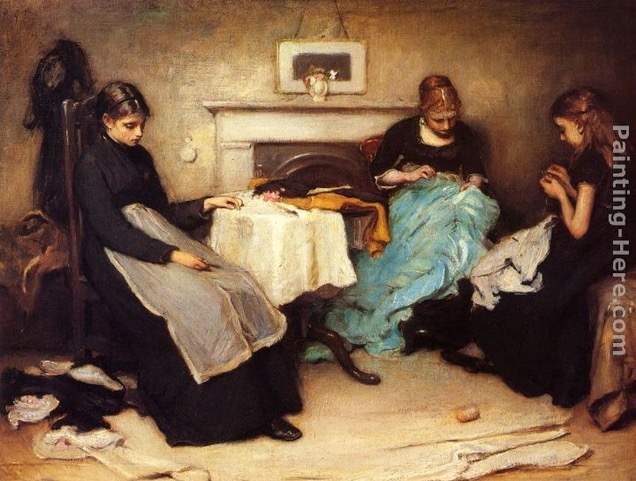
2With eyelids heavy and red,
3A woman sat, in unwomanly rags,
4Plying her needle and thread—
5Stitch! stitch! stitch!
6In poverty, hunger, and dirt,
7And still with a voice of dolorous pitch
8She sang the “Song of the Shirt.”
9“Work! work! work!
10While the cock is crowing aloof!
11And work—work—work,
12Till the stars shine through the roof!
13It’s O! to be a slave
14Along with the barbarous Turk,
15Where woman has never a soul to save,
16If this is Christian work!
17“Work—work—work
18Till the brain begins to swim;
19Work—work—work
20Till the eyes are heavy and dim!
21Seam, and gusset, and band,
22Band, and gusset, and seam,
23Till over the buttons I fall asleep,
24And sew them on in a dream!
25“O, Men, with Sisters dear!
26O, Men! with Mothers and Wives!
27It is not linen you’re wearing out,
28But human creatures’ lives!
29Stitch—stitch—stitch,
30In poverty, hunger, and dirt,
31Sewing at once with a double thread,
32A Shroud as well as a Shirt.
33“But why do I talk of Death?
34That Phantom of grisly bone,
35I hardly fear its terrible shape,
36It seems so like my own—
37It seems so like my own,
38Because of the fasts I keep;
39Oh! God! that bread should be so dear,
40And flesh and blood so cheap!
41“Work—work—work!
42My Labour never flags;
43And what are its wages? A bed of straw,
44A crust of bread—and rags.
45That shatter’d roof—and this naked floor—
46A table—a broken chair—
47And a wall so blank, my shadow I thank
48For sometimes falling there!
49“Work—work—work!
50From weary chime to chime,
51Work—work—work!
52As prisoners work for crime!
53Band, and gusset, and seam,
54Seam, and gusset, and band,
55Till the heart is sick, and the brain benumb’d,
56As well as the weary hand.
57“Work—work—work,
58In the dull December light,
59And work—work—work,
60When the weather is warm and bright—
61While underneath the eaves
62The brooding swallows cling
63As if to show me their sunny backs
64And twit me with the spring.
65“O! but to breathe the breath
66Of the cowslip and primrose sweet—
67With the sky above my head,
68And the grass beneath my feet
69For only one short hour
70To feel as I used to feel,
71Before I knew the woes of want
72And the walk that costs a meal!
73“O! but for one short hour!
74A respite however brief!
75No blessed leisure for Love or Hope,
76But only time for Grief!
77A little weeping would ease my heart,
78But in their briny bed
79My tears must stop, for every drop
80Hinders needle and thread!”
81With fingers weary and worn,
82With eyelids heavy and red,
83A woman sat in unwomanly rags,
84Plying her needle and thread—
85Stitch! stitch! stitch!
86In poverty, hunger, and dirt,
87And still with a voice of dolorous pitch,—
88Would that its tone could reach the Rich!—
89She sang this “Song of the Shirt!”
” data-highlight-when-focused=”true” data-toggle-drawer=”” style=”box-sizing: border-box; border-top-left-radius: 3px; border-top-right-radius: 3px; border-bottom-right-radius: 3px; border-bottom-left-radius: 0px; padding-bottom: 2em;”>
“The Song of the Shirt” Themes
With fingers weary and worn,
2With eyelids heavy and red,
3A woman sat, in unwomanly rags,
4Plying her needle and thread—
5Stitch! stitch! stitch!
6In poverty, hunger, and dirt,
7And still with a voice of dolorous pitch
8She sang the “Song of the Shirt.”
9“Work! work! work!
10While the cock is crowing aloof!
11And work—work—work,
12Till the stars shine through the roof!
13It’s O! to be a slave
14Along with the barbarous Turk,
15Where woman has never a soul to save,
16If this is Christian work!
17“Work—work—work
18Till the brain begins to swim;
19Work—work—work
20Till the eyes are heavy and dim!
21Seam, and gusset, and band,
22Band, and gusset, and seam,
23Till over the buttons I fall asleep,
24And sew them on in a dream!
25“O, Men, with Sisters dear!
26O, Men! with Mothers and Wives!
27It is not linen you’re wearing out,
28But human creatures’ lives!
29Stitch—stitch—stitch,
30In poverty, hunger, and dirt,
31Sewing at once with a double thread,
32A Shroud as well as a Shirt.
33“But why do I talk of Death?
34That Phantom of grisly bone,
35I hardly fear its terrible shape,
36It seems so like my own—
37It seems so like my own,
38Because of the fasts I keep;
39Oh! God! that bread should be so dear,
40And flesh and blood so cheap!
41“Work—work—work!
42My Labour never flags;
43And what are its wages? A bed of straw,
44A crust of bread—and rags.
45That shatter’d roof—and this naked floor—
46A table—a broken chair—
47And a wall so blank, my shadow I thank
48For sometimes falling there!
49“Work—work—work!
50From weary chime to chime,
51Work—work—work!
52As prisoners work for crime!
53Band, and gusset, and seam,
54Seam, and gusset, and band,
55Till the heart is sick, and the brain benumb’d,
56As well as the weary hand.
57“Work—work—work,
58In the dull December light,
59And work—work—work,
60When the weather is warm and bright—
61While underneath the eaves
62The brooding swallows cling
63As if to show me their sunny backs
64And twit me with the spring.
65“O! but to breathe the breath
66Of the cowslip and primrose sweet—
67With the sky above my head,
68And the grass beneath my feet
69For only one short hour
70To feel as I used to feel,
71Before I knew the woes of want
72And the walk that costs a meal!
73“O! but for one short hour!
74A respite however brief!
75No blessed leisure for Love or Hope,
76But only time for Grief!
77A little weeping would ease my heart,
78But in their briny bed
79My tears must stop, for every drop
80Hinders needle and thread!”
81With fingers weary and worn,
82With eyelids heavy and red,
83A woman sat in unwomanly rags,
84Plying her needle and thread—
85Stitch! stitch! stitch!
86In poverty, hunger, and dirt,
87And still with a voice of dolorous pitch,—
88Would that its tone could reach the Rich!—
89She sang this “Song of the Shirt!”
” data-highlight-when-focused=”true” data-modal-title=”Theme” data-position=”1″ data-title=”Poverty and Labor in Victorian England” style=”box-sizing: border-box; border-radius: 3px 3px 3px 0px; padding-bottom: 1em;”>
“The Song of the Shirt” spotlights the experiences of Victorian England’s working poor. The subject of the poem is a seamstress who works ceaselessly in inhumane, even torturous conditions simply to get by. This unending labor fills her with deep despair and hopelessness, even as “the Rich” remain oblivious to these struggles of the working class. Through the woman’s song, the poem seeks to expose the burdens of poverty and the dehumanizing labor conditions faced by poor workers in 19th-century England.
The seamstress’s song emphasizes the repetitive, monotonous, and utterly exhausting nature of her labor. She complains that she works from morning, when the rooster crows, to night, when the stars shine, and that all day she can’t take even “one short hour” of rest. She doesn’t even have time to cry, she sings, because crying will slow her work. Ultimately, the seamstress works so long that she falls asleep over the buttons she sews, only to then keep on working “in a dream.”
All this work takes an immense physical and mental toll on the seamstress. Her fingers are “weary and worn” while her “eyelids [are] heavy and red.” She feels like the “brooding swallows” outside taunt her, singing that they “twit me with the spring”—mocking her while she’s trapped inside her “blank” and unpleasant room. Her heart and mind, meanwhile, have grown “sick” and numb. Working to survive is, ironically, draining the seamstress of her very life: she says that she’s “Sewing at once, with a double thread, / A Shroud as well as a Shirt”—in other words, preparing for her own funeral—and beginning to look like the “terrible shape” of death itself.
The seamstress’s misery, the poem implies, is the product of a society that values human life less than material goods—that treats “flesh and blood” as “cheap.” Those who buy her clothes pay no heed to the fact that it’s “not linen” they’re “wearing out” but rather “human creatures’ lives”—in other words, they don’t know or care that they’re benefitting from the torturous, endless labor of people in poverty. The seamstress even compares herself to a “slave,” indicating that she feels like society treats her as sub-human. Instead, she is a “creature” or a “prisoner” without “a soul to save.”
By recording the seamstress’s song, the speaker of “The Song of the Shirt” thus exposes how miserable, dirty, and inhumane life can be for the working poor. Writing at the end, “Would that its tone could reach the Rich,” the speaker suggests that if others only listened to and cared about the seamstress, they might realize that people like her need—and indeed deserve—relief from the torments of poverty.
2With eyelids heavy and red,
3A woman sat, in unwomanly rags,
4Plying her needle and thread—
5Stitch! stitch! stitch!
6In poverty, hunger, and dirt,
7And still with a voice of dolorous pitch
8She sang the “Song of the Shirt.”
9“Work! work! work!
10While the cock is crowing aloof!
11And work—work—work,
12Till the stars shine through the roof!
13It’s O! to be a slave
14Along with the barbarous Turk,
15Where woman has never a soul to save,
16If this is Christian work!
17“Work—work—work
18Till the brain begins to swim;
19Work—work—work
20Till the eyes are heavy and dim!
21Seam, and gusset, and band,
22Band, and gusset, and seam,
23Till over the buttons I fall asleep,
24And sew them on in a dream!
25“O, Men, with Sisters dear!
26O, Men! with Mothers and Wives!
27It is not linen you’re wearing out,
28But human creatures’ lives!
29Stitch—stitch—stitch,
30In poverty, hunger, and dirt,
31Sewing at once with a double thread,
32A Shroud as well as a Shirt.
33“But why do I talk of Death?
34That Phantom of grisly bone,
35I hardly fear its terrible shape,
36It seems so like my own—
37It seems so like my own,
38Because of the fasts I keep;
39Oh! God! that bread should be so dear,
40And flesh and blood so cheap!
41“Work—work—work!
42My Labour never flags;
43And what are its wages? A bed of straw,
44A crust of bread—and rags.
45That shatter’d roof—and this naked floor—
46A table—a broken chair—
47And a wall so blank, my shadow I thank
48For sometimes falling there!
49“Work—work—work!
50From weary chime to chime,
51Work—work—work!
52As prisoners work for crime!
53Band, and gusset, and seam,
54Seam, and gusset, and band,
55Till the heart is sick, and the brain benumb’d,
56As well as the weary hand.
57“Work—work—work,
58In the dull December light,
59And work—work—work,
60When the weather is warm and bright—
61While underneath the eaves
62The brooding swallows cling
63As if to show me their sunny backs
64And twit me with the spring.
65“O! but to breathe the breath
66Of the cowslip and primrose sweet—
67With the sky above my head,
68And the grass beneath my feet
69For only one short hour
70To feel as I used to feel,
71Before I knew the woes of want
72And the walk that costs a meal!
73“O! but for one short hour!
74A respite however brief!
75No blessed leisure for Love or Hope,
76But only time for Grief!
77A little weeping would ease my heart,
78But in their briny bed
79My tears must stop, for every drop
80Hinders needle and thread!”
81With fingers weary and worn,
82With eyelids heavy and red,
83A woman sat in unwomanly rags,
84Plying her needle and thread—
85Stitch! stitch! stitch!
86In poverty, hunger, and dirt,
87And still with a voice of dolorous pitch,—
88Would that its tone could reach the Rich!—
89She sang this “Song of the Shirt!”
” data-highlight-when-focused=”true” data-modal-title=”Theme” data-position=”2″ data-title=”Gender Inequality in Victorian England” style=”box-sizing: border-box; border-radius: 3px 3px 3px 0px; padding-bottom: 2em;”>
The poor seamstress at the heart of “The Song of the Shirt” believes that her life is all the more difficult because she is a woman struggling to provide for herself in a society that devalues women’s labor. While the poem predominantly focuses on the burdens of poverty in general, Hood also suggests that those burdens are distributed unequally; Victorian society placed a premium on traditional femininity (especially physical beauty, grace, and obedience) and granted women fewer opportunities to become independent or self-sufficient—making it all the more difficult for those women who had to work to support themselves and their families.
The subject of the poem toils over the kind of work (sewing clothing by hand) that many poverty-stricken women had to perform to survive in the 19th century. Hood in fact wrote the poem in honor of a widow named Mrs. Biddell, who sewed clothes and pawned the clothing she made in order to feed her starving children. The seamstress in the poem likewise constantly works her “needle and thread,” obsessing over “seam, and gusset, and band,” because this is the only way she can support herself. The seamstress doesn’t mention if she has children, but she does blame men for burdening her and other women with this tedious work, crying, “O, men, with sisters dear! / O, men, with mothers and wives!” She suggests that while women must work to feed their families, men often don’t realize—or care—how much their wives and sisters suffer as a result of these burdens.
Because she works so hard, slaving over needle and thread, the seamstress seems to lose what makes her a woman. In the first and last stanzas, the speaker describes the seamstress as a “woman” in “unwomanly rags.” The seamstress obviously can’t take care of her physical appearance: she can hardly feed herself, let alone try to look “womanly.” The seamstress also complains that her work makes her feel like less than a woman—indeed, less than a human being. She claims that “human creatures’ lives” get worn out by these horrible, impoverished conditions. Lack of food and rest make the seamstress look like death itself, a “phantom of grisly bone.” Evidently, the physical toll of the seamstress’s work is almost more than she can endure.
Ultimately, “The Song of the Shirt” demonstrates that very poor women must bear such extreme burdens that they cease to really be women at all (in a Victorian sense of the word, that is), becoming instead “benumbed” and “weary” slaves.
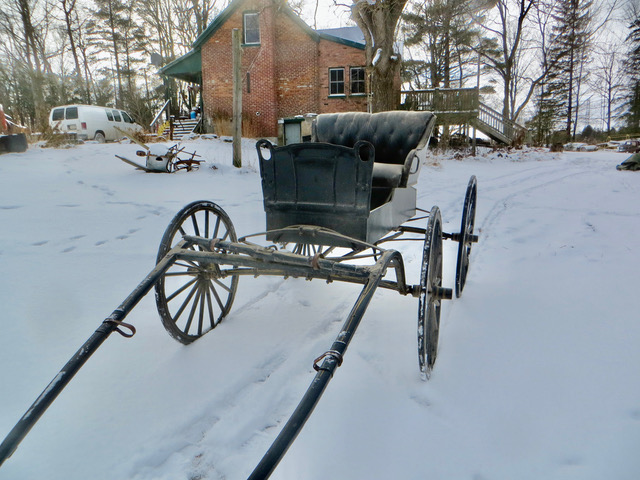
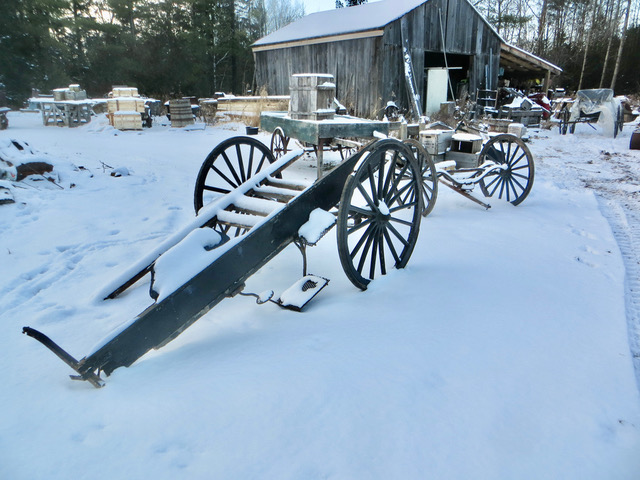
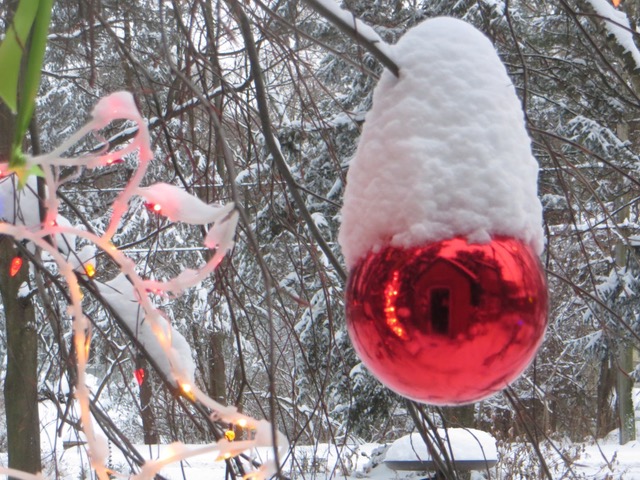
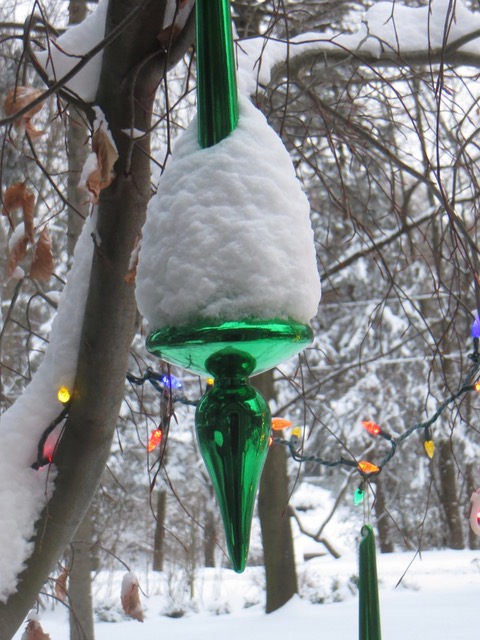
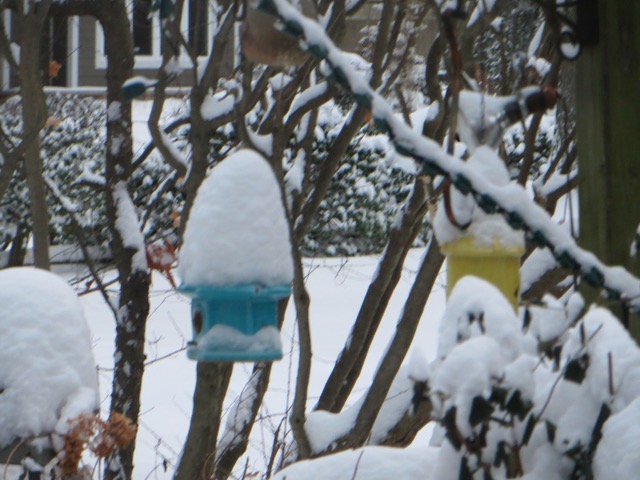
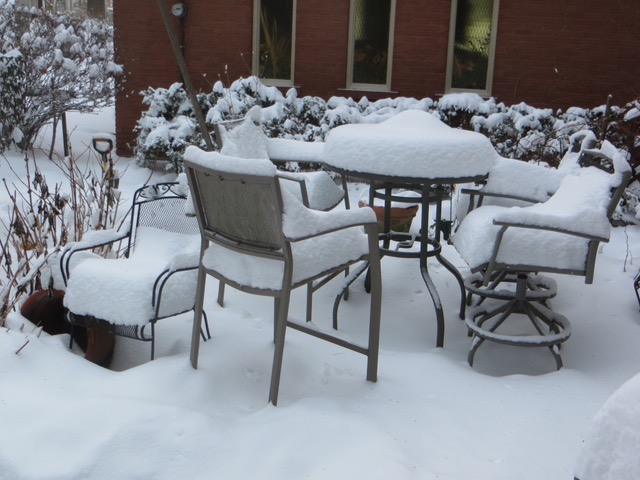
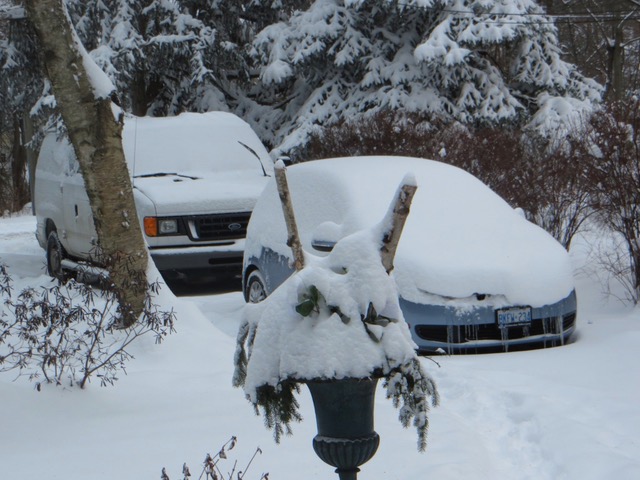
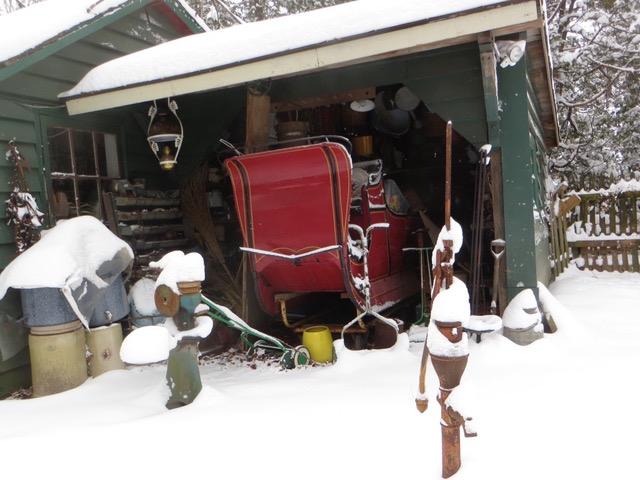
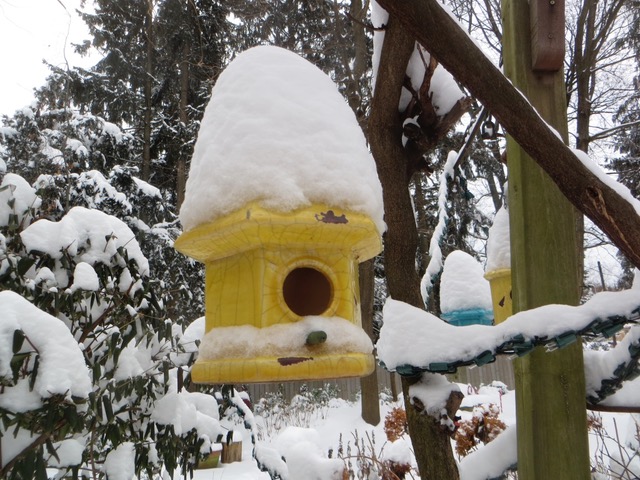
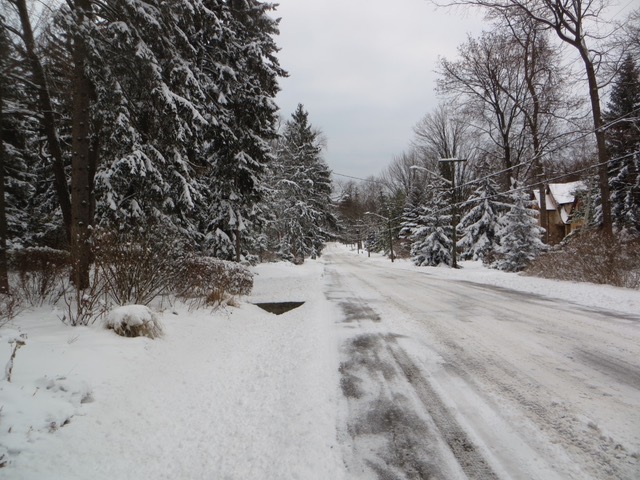
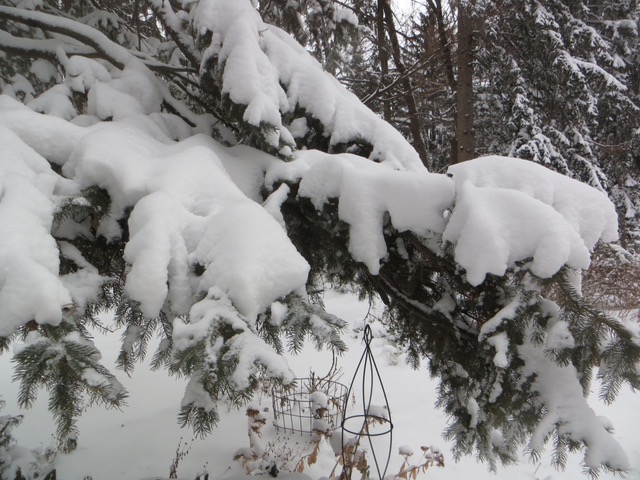
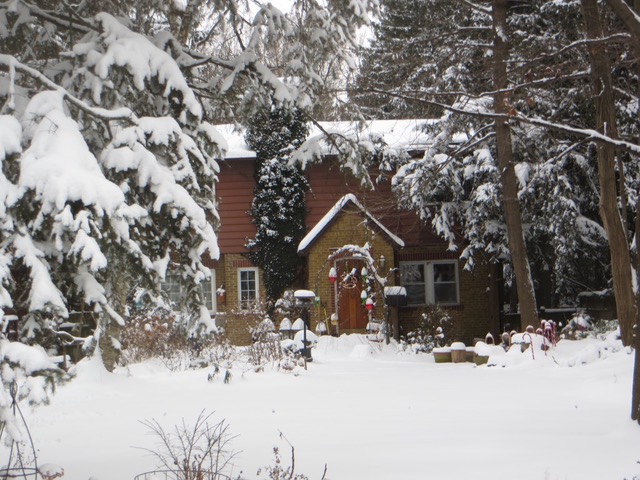
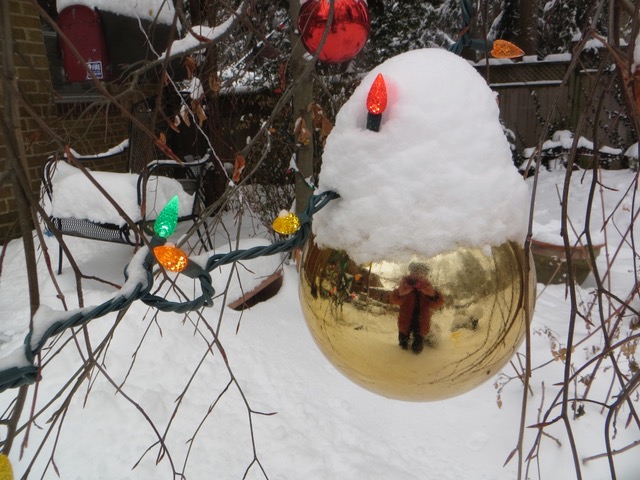
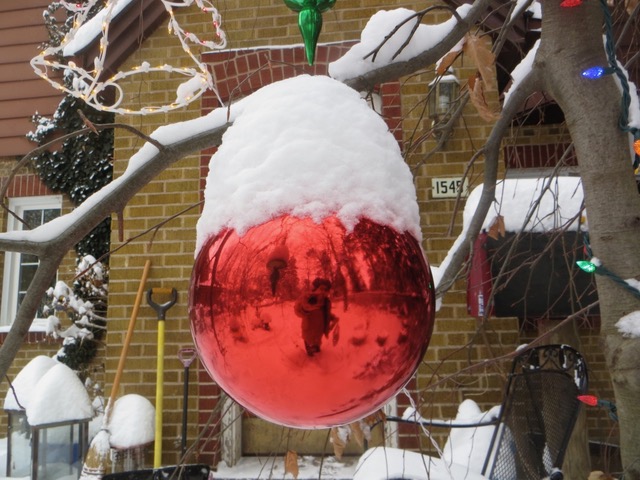
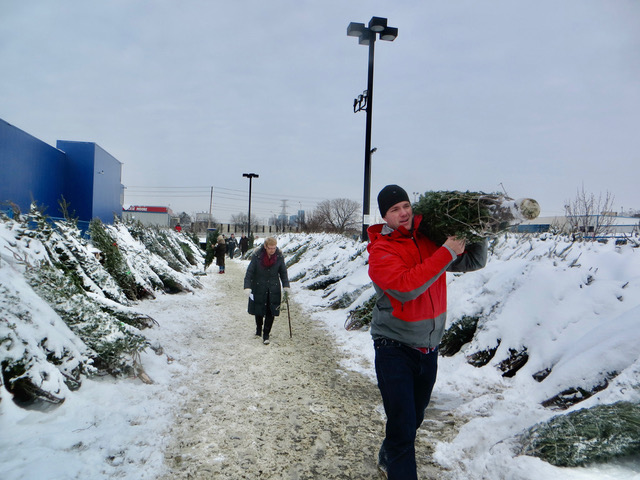




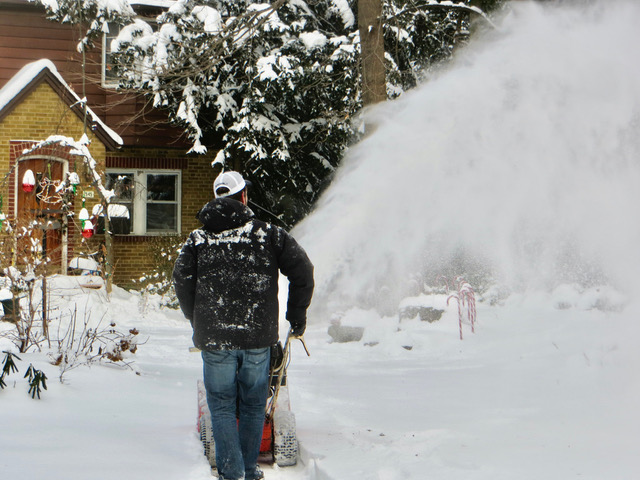
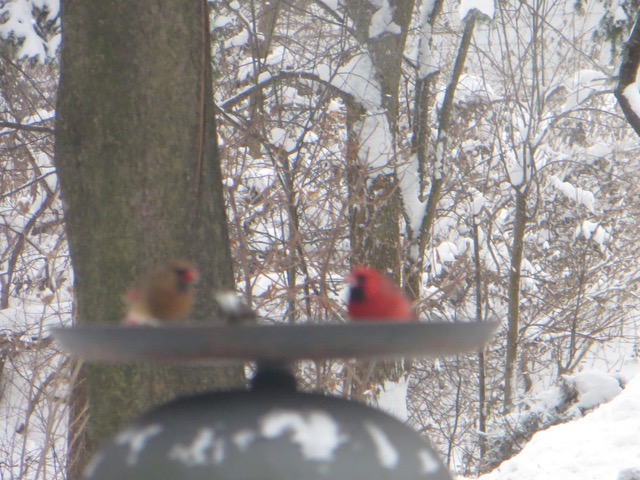
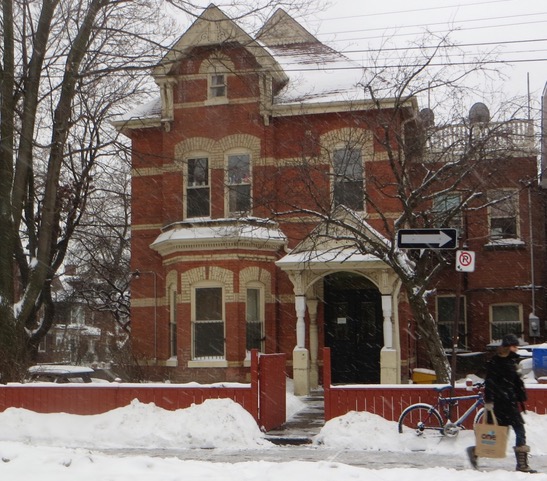
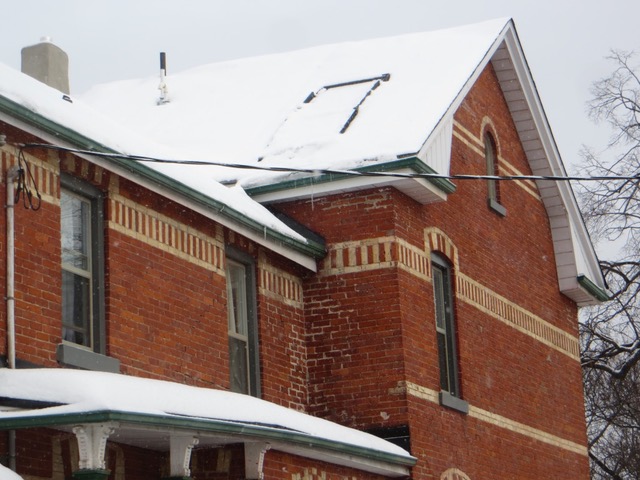
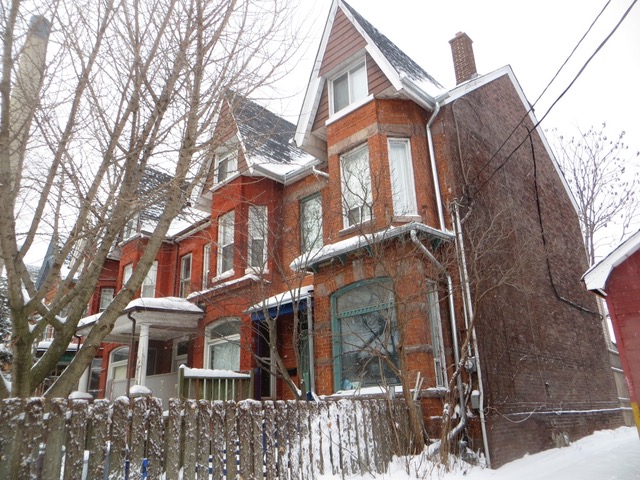
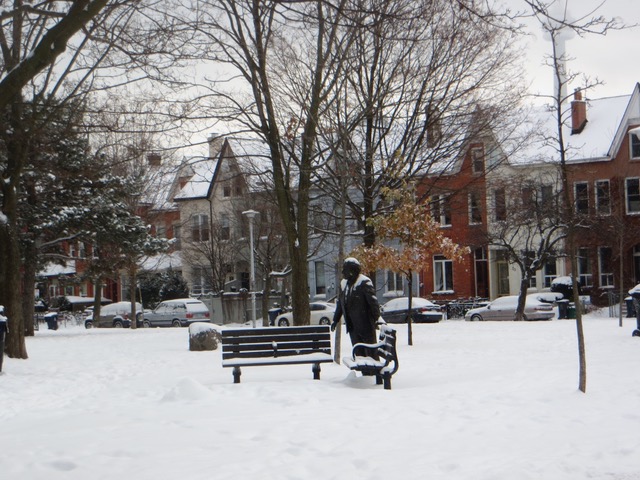
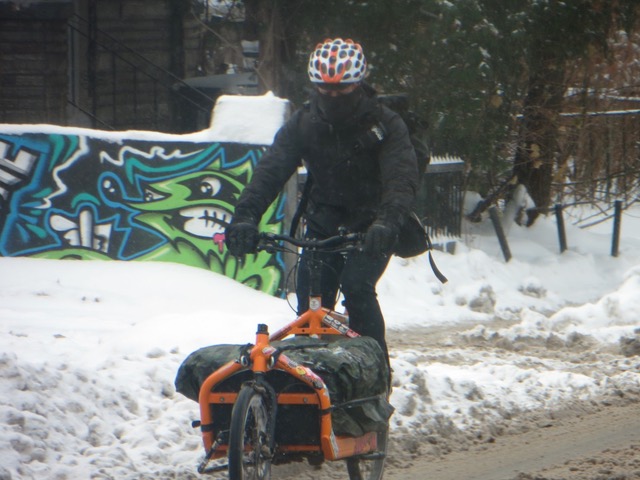
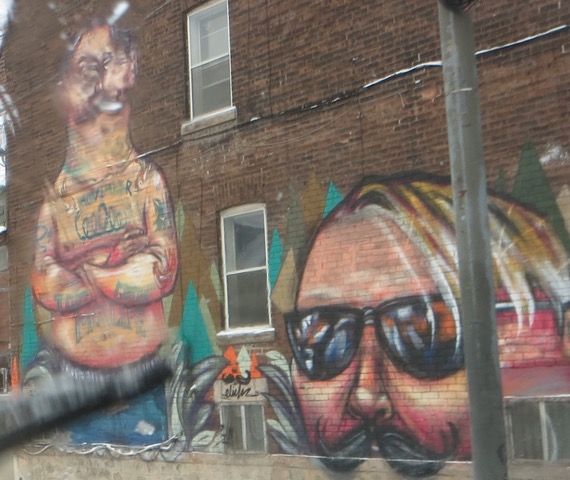
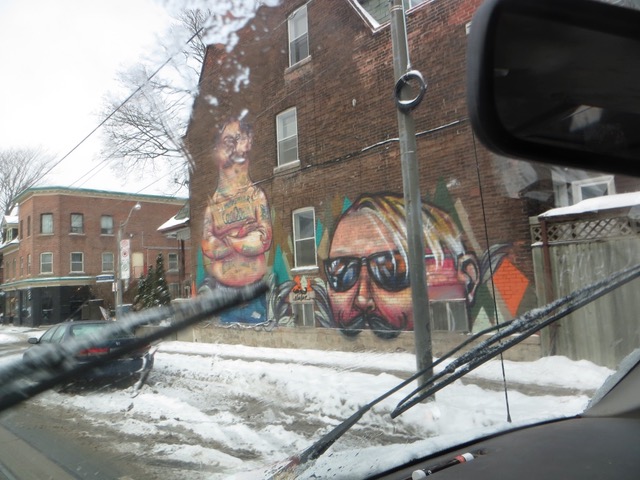
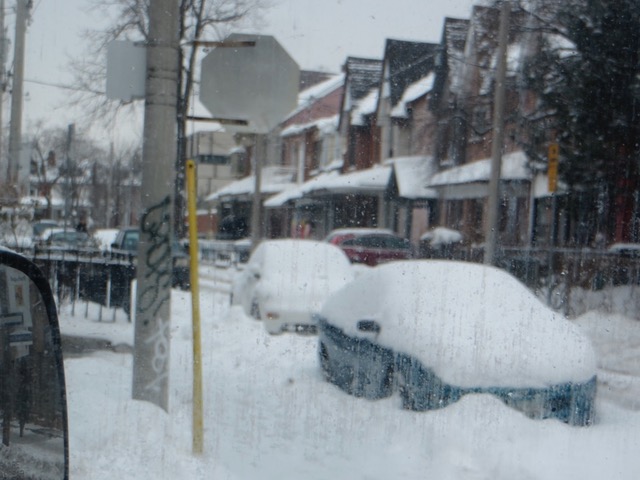
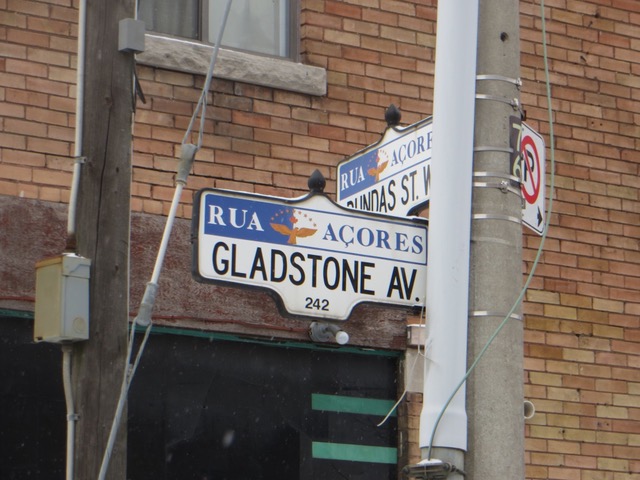
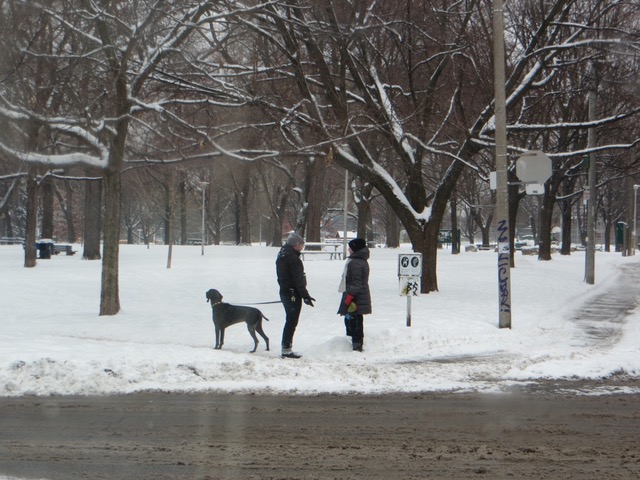
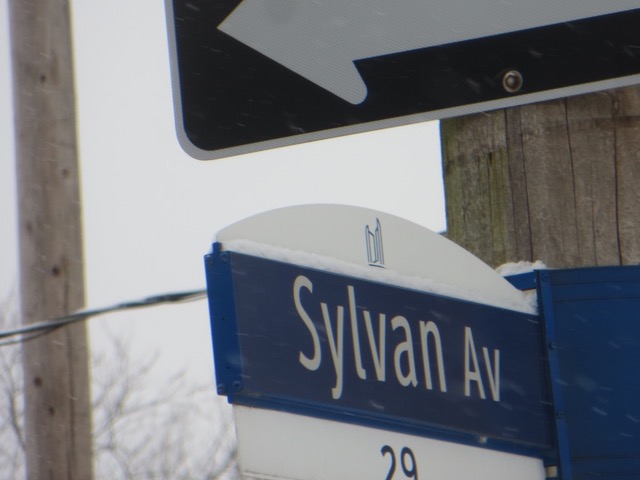
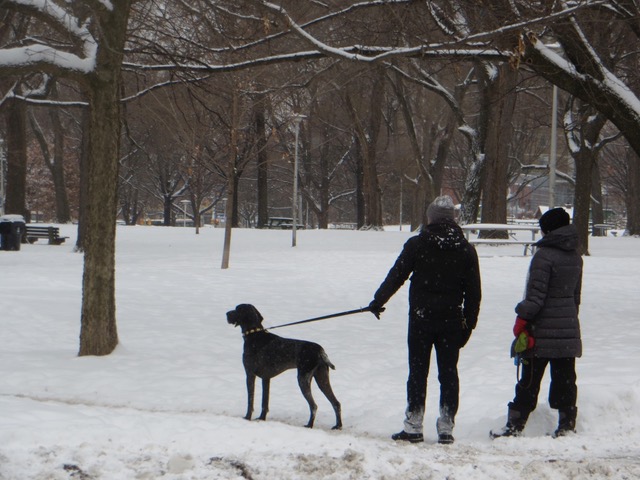
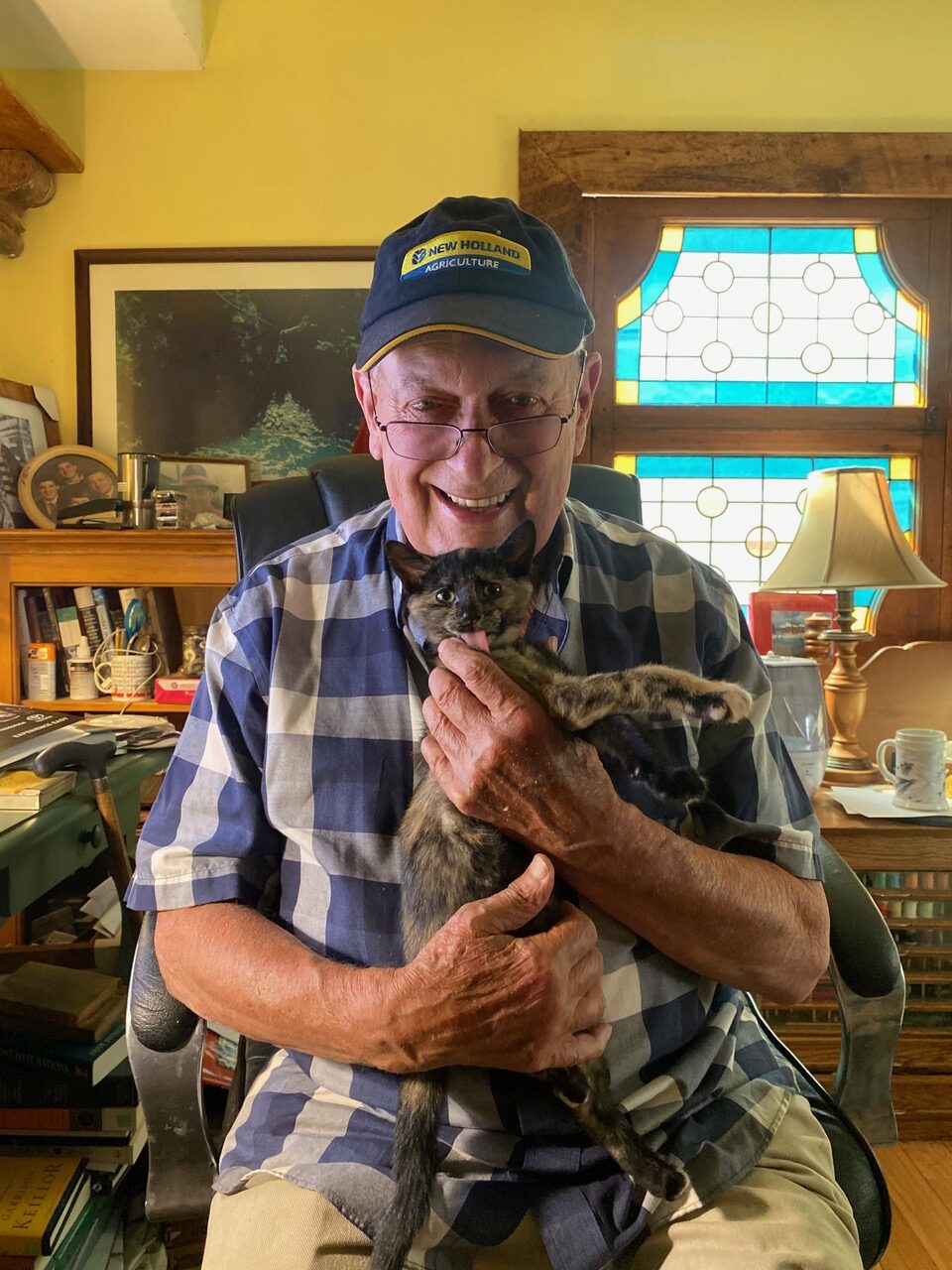

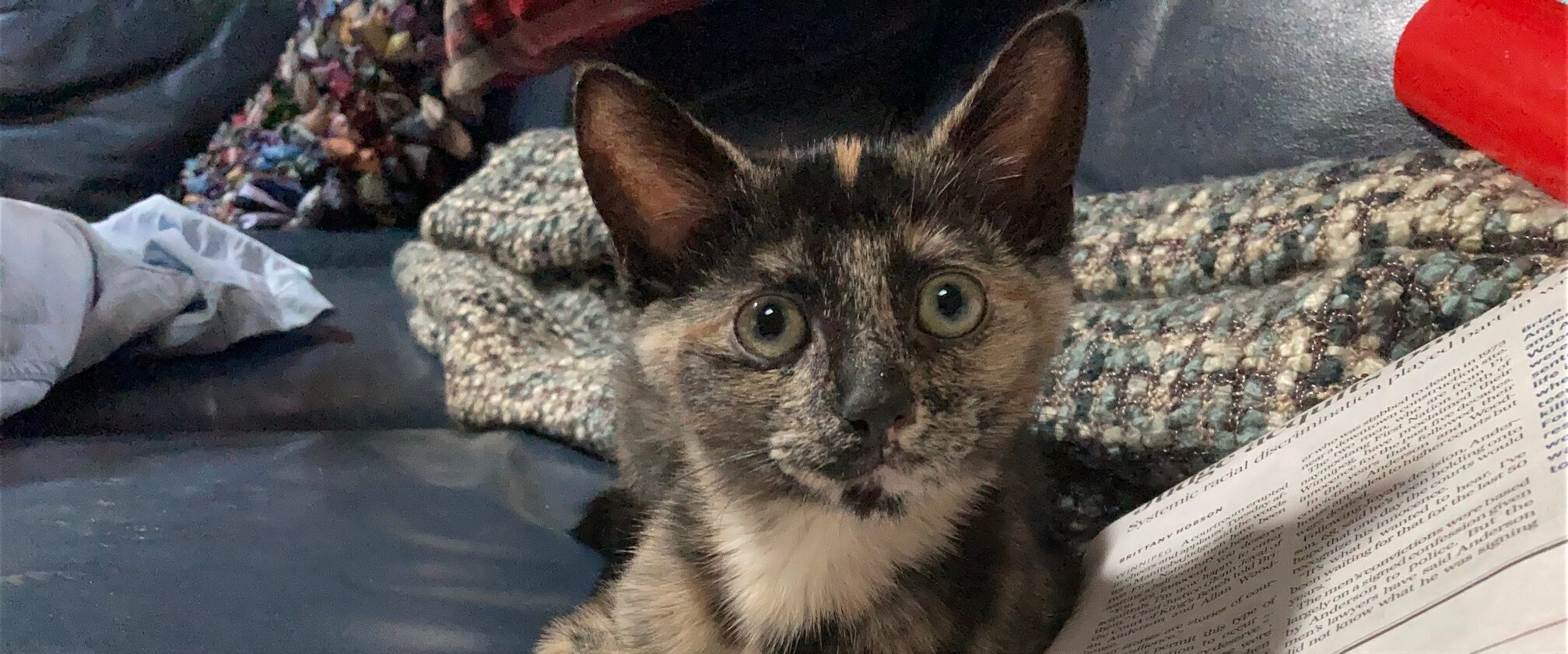
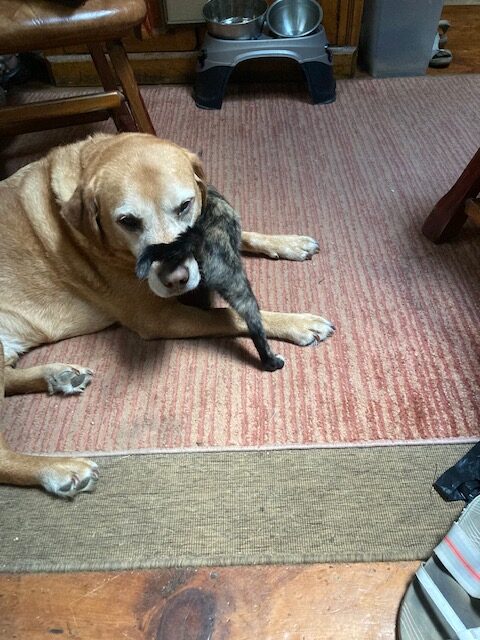
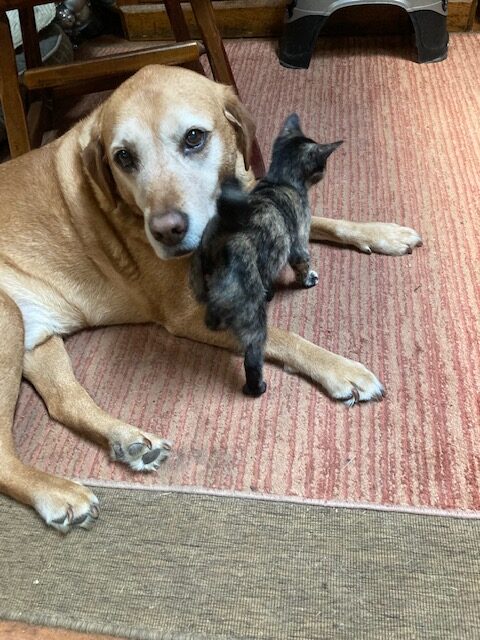
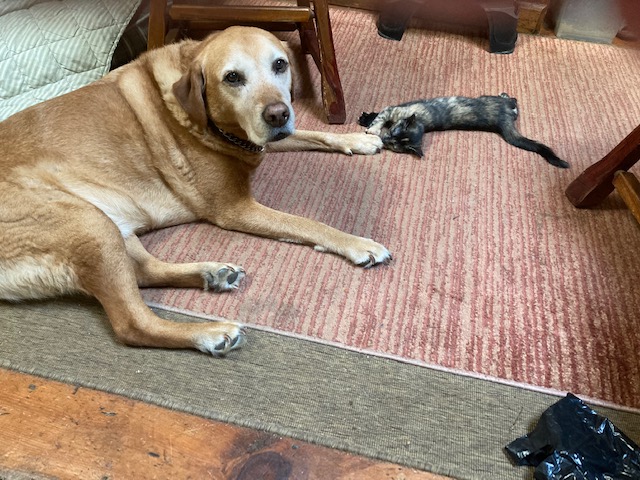
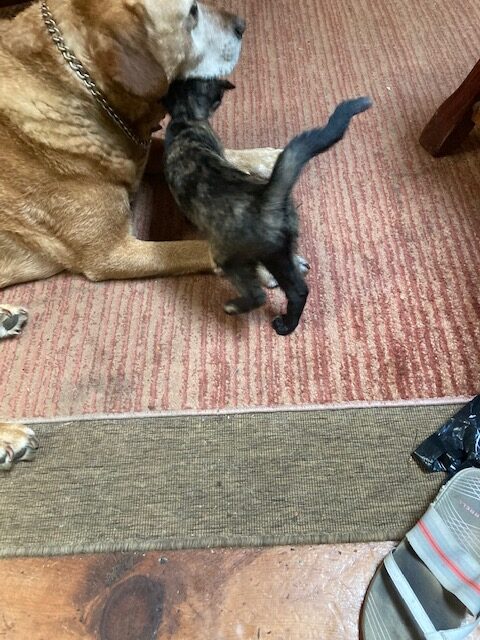
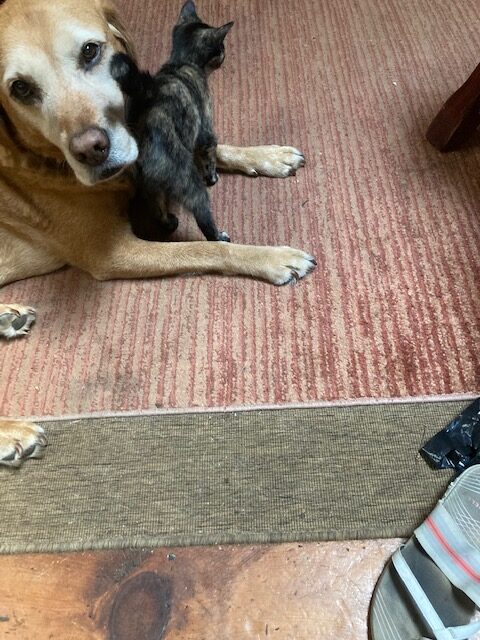
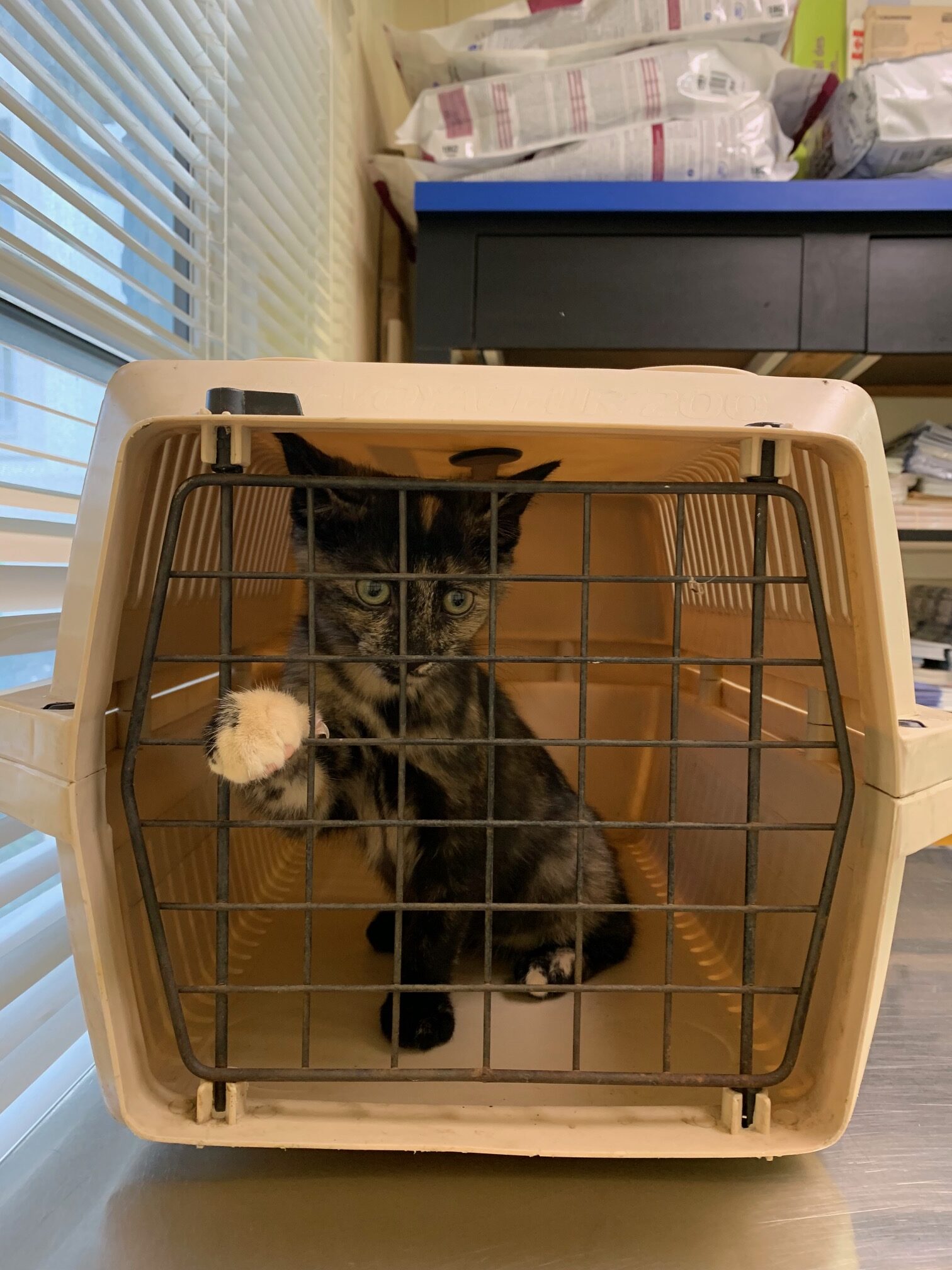
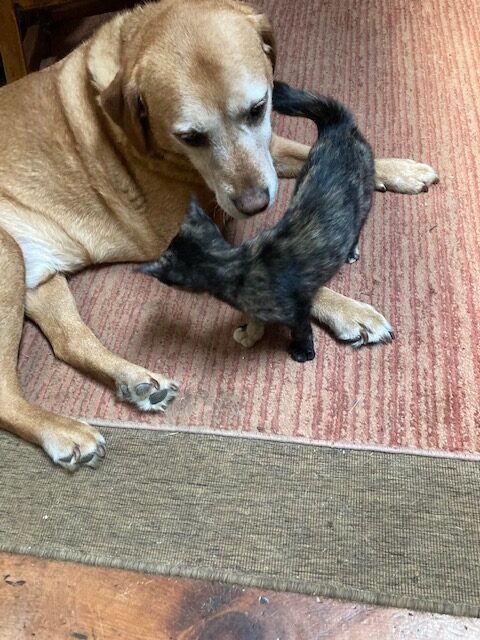
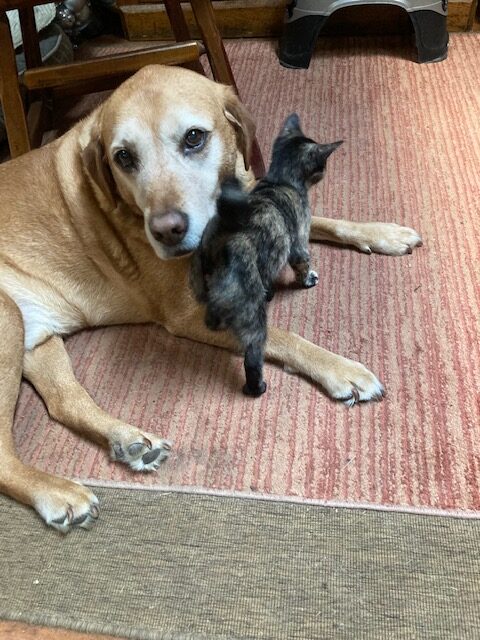
EPISODE 856 DIDO ELIZABETH BELLEAlan skeochjuly 13, 2023What captures your attention when you look at this 18th century painting??“Who is the brown skinned lady in this paining?”“Her name was Dido Elizabeth Belle and she was born in 1761 in the British West Indies.’“What is startling about her ?”“Off the top, she is very pretty.”“And?”“And she seems totally relaxed with the white girl…they seem to be good friends.”“Why is that remarkable?”“Slaves were expected to defer to their owners in the 18th century, yet this brown girlseems to be good friend … certainly not a slave. I think the girls are sharing conversation.As a mater of fact, the brown skinned girl named Dido is even more relaxed than the white girl. I would haveexpected the reverse in that century. Seems like they are both sharing a secret conversation.they are equal, ..I would even go so far as to say the black girl is dominant..so totallyrelaxed. So unlike a slave.”“Do you know who she was?”“No”“Here name was Dido Elizabeth Belle.”“She was a remarkable young lady…a lucky young lady”“How so?”“She may have influenced the abolition of slavery in England.….her early life was startling.”
HISTORY OF DIDO ELIZABETH BELLE
‘her mother, whose name is believed to be Maria Bell, was a slave in the West Indies. The year that Belle’s parents met is not known, nor is it clear that their relationship was consensual. Belle’s baptism records yield no information about her father which indicates she was considered an illegitimate child.
Upon the death of Maria Bell, John Lindsay in 1766 requested that Belle be entrusted to his uncle, Lord Mansfield, who was already raising his young great-niece, Elizabeth Murray, due to her mother passing and her father’s serving the Crown as an ambassador first to Austria and later to France. The addition of Belle to Lord Mansfield’s household provided Elizabeth Murray with a playmate. Belle’s role in the household seemed to have been as Elizabeth’s lady’s companion rather than her lady’s maid. While in the household she received an education and an annual allowance of £30, several times the wages of a domestic servant. As an adult she managed the estate’s dairy and poultry yards and helped Lord Mansfield with his correspondence, a task normally assigned a male secretary or clerk.
Dido Elizabeth Belle spent nearly three decades at Kenwood House, the home of the Murray family. The best insight into Belle’s life with Lord Mansfield comes from Thomas Hutchinson who visited Kenwood House in 1779 when she was around 18 or 19. While dining with Mansfield, Hutchinson was surprised to see Belle, a woman of black ancestry, sitting with the ladies drinking coffee and later going on a walk with her arm locked with another woman. An American guest reported, however, that Belle was not allowed to dine with the family.
In 1784, Belle witnessed the death of Lady Mansfield and the following year the marriage of Lady Elizabeth Murray to a distant cousin, George Finch Hatton. She remained at Kenwood House, however, for nearly another decade, finally leaving the estate upon the death of Lord Mansfield in 1793.
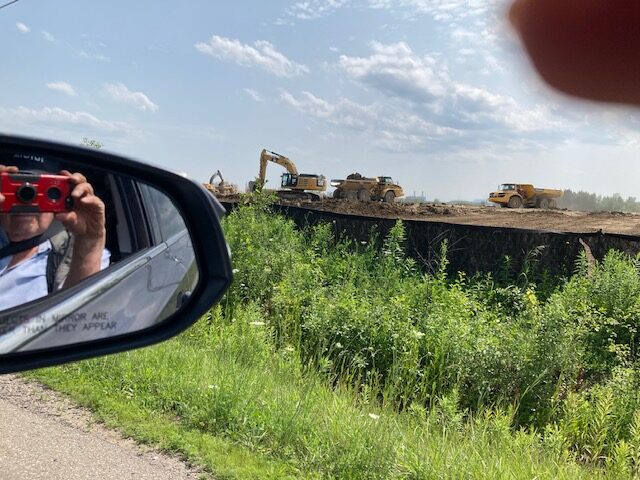 B
B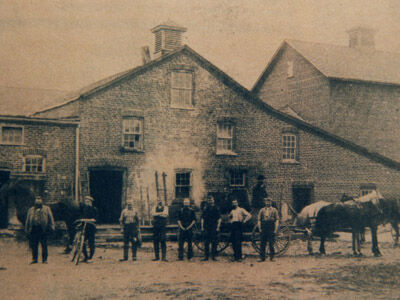
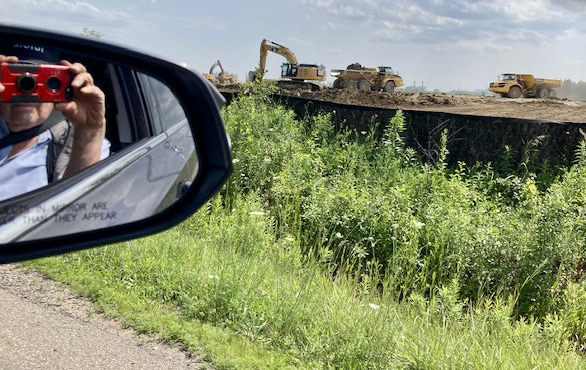
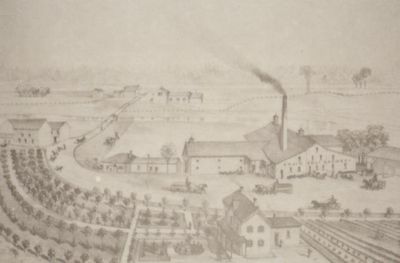
 bloximages.chicago2.vip.townnews.com/theifp.ca/content/tncms/assets/v3/editorial/d/59/d599fc38-8651-5682-ad77-738a894ec0ad/63de34ed43a5a.image.jpg?resize=200%2C150 200w, bloximages.chicago2.vip.townnews.com/theifp.ca/content/tncms/assets/v3/editorial/d/59/d599fc38-8651-5682-ad77-738a894ec0ad/63de34ed43a5a.image.jpg?resize=225%2C169 225w, bloximages.chicago2.vip.townnews.com/theifp.ca/content/tncms/assets/v3/editorial/d/59/d599fc38-8651-5682-ad77-738a894ec0ad/63de34ed43a5a.image.jpg?resize=300%2C225 300w, bloximages.chicago2.vip.townnews.com/theifp.ca/content/tncms/assets/v3/editorial/d/59/d599fc38-8651-5682-ad77-738a894ec0ad/63de34ed43a5a.image.jpg?resize=400%2C300 400w” sizes=”100vw” alt=”way we were brain brewery” class=”blur img-responsive true-size” apple-inline=”yes” id=”C901F23F-3F64-4CBF-8DE5-A118F2B478A1″ src=”https://alanskeoch.ca/wp-content/uploads/2023/07/63de34ed43a5a.image_-1.jpg”>
bloximages.chicago2.vip.townnews.com/theifp.ca/content/tncms/assets/v3/editorial/d/59/d599fc38-8651-5682-ad77-738a894ec0ad/63de34ed43a5a.image.jpg?resize=200%2C150 200w, bloximages.chicago2.vip.townnews.com/theifp.ca/content/tncms/assets/v3/editorial/d/59/d599fc38-8651-5682-ad77-738a894ec0ad/63de34ed43a5a.image.jpg?resize=225%2C169 225w, bloximages.chicago2.vip.townnews.com/theifp.ca/content/tncms/assets/v3/editorial/d/59/d599fc38-8651-5682-ad77-738a894ec0ad/63de34ed43a5a.image.jpg?resize=300%2C225 300w, bloximages.chicago2.vip.townnews.com/theifp.ca/content/tncms/assets/v3/editorial/d/59/d599fc38-8651-5682-ad77-738a894ec0ad/63de34ed43a5a.image.jpg?resize=400%2C300 400w” sizes=”100vw” alt=”way we were brain brewery” class=”blur img-responsive true-size” apple-inline=”yes” id=”C901F23F-3F64-4CBF-8DE5-A118F2B478A1″ src=”https://alanskeoch.ca/wp-content/uploads/2023/07/63de34ed43a5a.image_-1.jpg”>